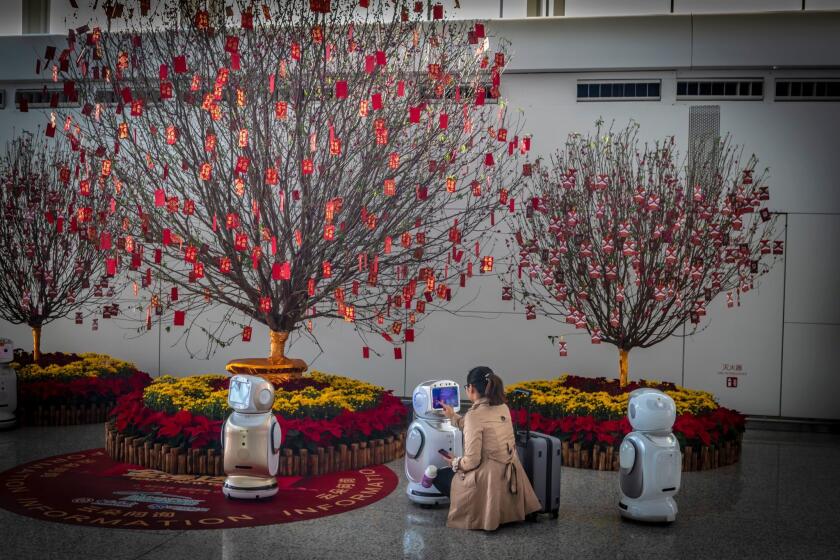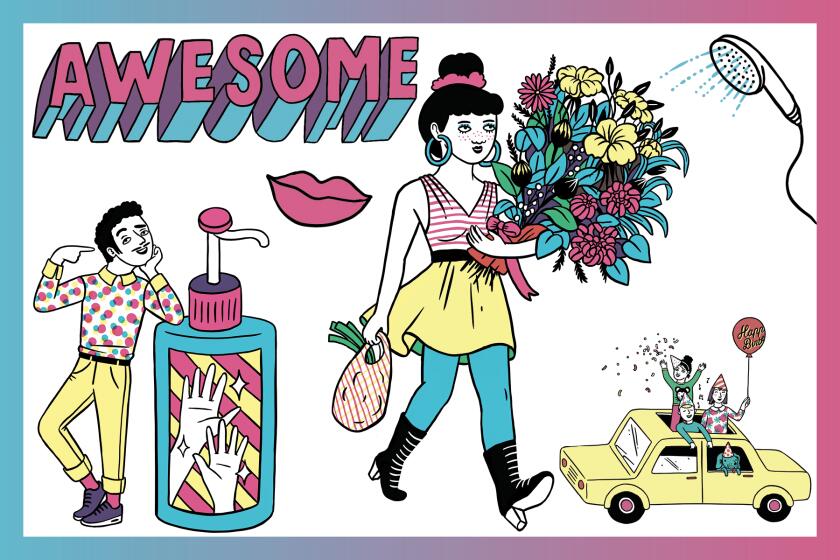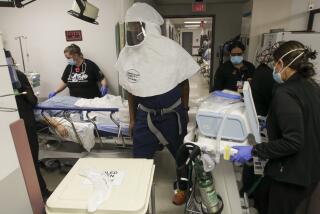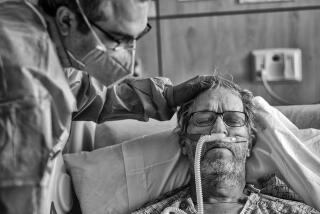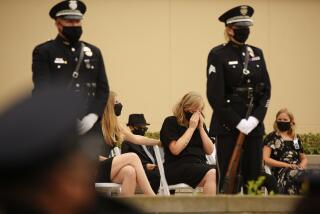I’ve been an ER doctor for 20 years. I’ll never forget this COVID-19 patient
- Share via
I have been an emergency medicine physician for almost 20 years, which means I’ve worked through numerous disasters. I’m used to the daily grind of heart attacks, gunshots, strokes, flu, traumas and more.
Yet nothing has made me feel about my work the way this pandemic has: I have a knot in my stomach each day as I head into work at Advocate Condell Medical Center in the northern suburbs of Chicago. It is a sensation relieved only by the empathetic faces and presence of my colleagues, and knowing they are experiencing the same feelings I am — that they, too, understand and accept the profound risks we take each day.
I met my patient, Mr. C., on my first real “pandemic” shift, the first day we began seeing the surge of COVID-19 cases for which we had been preparing. He was classic in his presentation: his X-ray findings, his low oxygen levels. We just knew. And he was the nicest man I had met in a long time.
Gasping for breath, he kept asking if we needed anything, and reassuring us that it would all be OK. He told us he was a teacher but that he was learning so much from us, and he told us how much he respected what we were doing. I felt the same way about him.
We had to decide how long we would try to let him work through his low oxygen state before intubating him — a procedure that involves putting a tube into his lungs to keep him breathing — but his saturation levels kept falling. Despite all our efforts, it was time to put him on the ventilator.
He told us he didn’t feel great about this, but then added, “Doc, I trust you and am putting myself in your hands.” In that moment, the uneasy feeling in my stomach grew. But he, with his teacher’s steady voice, kept me grounded, just where I needed to be. I saw his eyes looking at me, seeing the kindness in them, even as we pushed the medications to put him to sleep.
Dispatch from the pandemic: Circumstances have forced my family to practice extreme social distancing
It was not an easy intubation. He nearly left us a few times during those first minutes, but he kept coming back. We fought hard to keep him with us. The patience and strength of my team that day was truly remarkable. Once the procedure was finished, and knowing that his battle was far from over, I handed him over to my friend and colleague, Dr. Beth Ginsburg, and her team in the ICU. Her calm voice reassured me that they had it from here.
And then, for the next 12 days, I waited and watched his progress, knowing the grim statistics, and how sick he was when he got to us.
With Mr. C, these same colleagues worked their magic and, after more than a week on the ventilator, my new friend was successfully extubated. I decided to go see him again.
Mr C. was in the COVID stepdown unit, recovering, without family. Nobody was allowed to visit him. Even worse, his wife had been home alone in isolation for the past 14 days, too. My heart broke thinking of how that must have been for her. I cautiously went into his room, wearing my PPE, and when he saw me, he stopped for a second. A moment of recognition. I introduced myself.
“I’m Dr. Akbarnia, Mr. C. I was the last person you saw in the ER. You told me you trusted us to get you to this side. Looks like you did just fine.”
He started to cry. He said, “I remember your eyes.”
Then I started to cry. What he didn’t know is that, at that moment, I realized that the reason we do what we do is for people like him, for moments like these. His strength, his kindness, his calming words meant everything to me. At that moment, my heart (which had been beating at more than 100 bpm since this pandemic began) finally slowed down.
I sat down and we talked. I told him that while he is in the hospital, we are his family, and that he will always have a place in my heart. And whether he knows it or not, he will be my silent warrior and guide as I take care of every patient, COVID or not. He will fuel me until the day I hang up my stethoscope.
Halleh Akbarnia practices emergency medicine in a Chicago suburb. This piece is adapted from her Facebook post.
We asked readers to share acts of kindness, large and small, that they’ve witnessed during this time of coronavirus. They are different, but all spring from selflessness and elicit gratitude.
More to Read
A cure for the common opinion
Get thought-provoking perspectives with our weekly newsletter.
You may occasionally receive promotional content from the Los Angeles Times.
